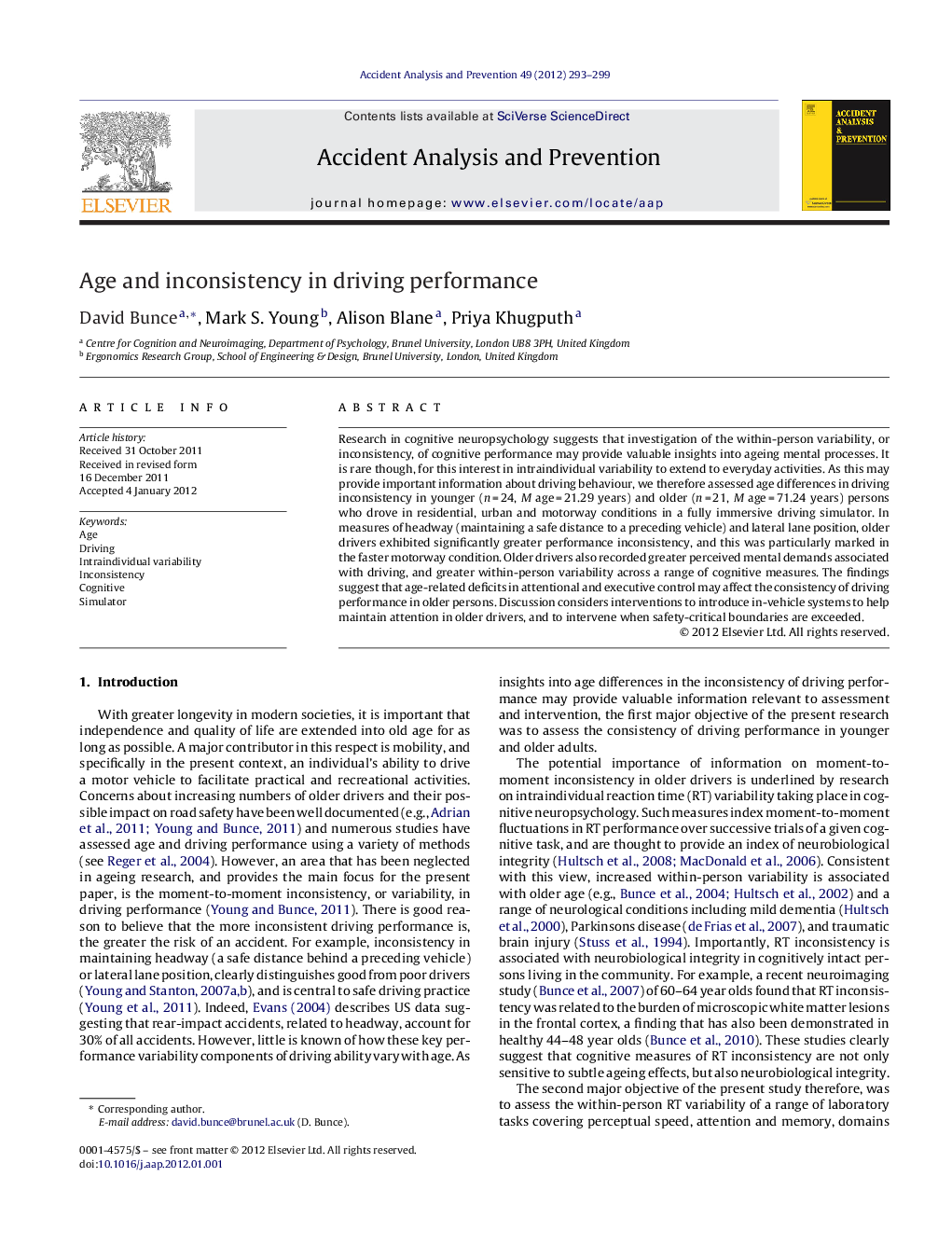| Article ID | Journal | Published Year | Pages | File Type |
|---|---|---|---|---|
| 572663 | Accident Analysis & Prevention | 2012 | 7 Pages |
Research in cognitive neuropsychology suggests that investigation of the within-person variability, or inconsistency, of cognitive performance may provide valuable insights into ageing mental processes. It is rare though, for this interest in intraindividual variability to extend to everyday activities. As this may provide important information about driving behaviour, we therefore assessed age differences in driving inconsistency in younger (n = 24, M age = 21.29 years) and older (n = 21, M age = 71.24 years) persons who drove in residential, urban and motorway conditions in a fully immersive driving simulator. In measures of headway (maintaining a safe distance to a preceding vehicle) and lateral lane position, older drivers exhibited significantly greater performance inconsistency, and this was particularly marked in the faster motorway condition. Older drivers also recorded greater perceived mental demands associated with driving, and greater within-person variability across a range of cognitive measures. The findings suggest that age-related deficits in attentional and executive control may affect the consistency of driving performance in older persons. Discussion considers interventions to introduce in-vehicle systems to help maintain attention in older drivers, and to intervene when safety-critical boundaries are exceeded.
► No research has considered inconsistency in driving behaviour as a performance metric. ► Older drivers were more inconsistent than younger drivers. ► Older drivers perceived greater mental demands than younger drivers. ► Older drivers were more inconsistent across a range of neuropsychological measures.
